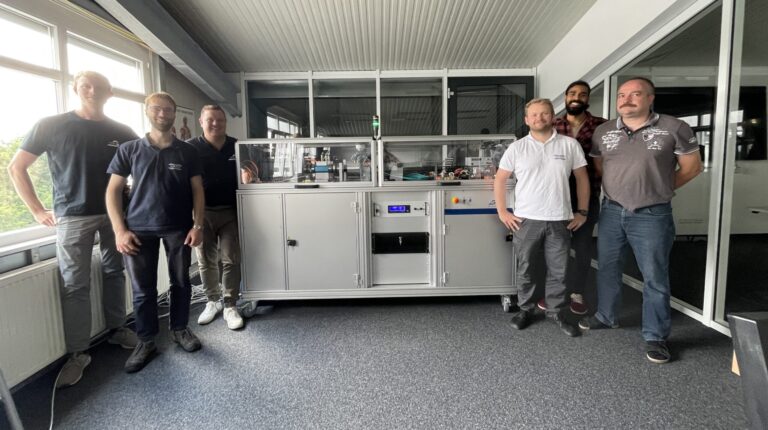Arnold NextG has added the mobile motor test bench (mMTB) from Moteon to its internal validation process. The safety-oriented test platform has been integrated into Arnold’s system testing architecture, enabling automated and reproducible function validation under lab conditions.
NX NextMotion, developed by Arnold NextG, serves as the core controller in the company’s modular drive-by-wire platform. The system features a quad-redundant safety architecture and is fully ASIL D-compliant as well as optimized for ultra-low FIT rates. It also supports integration with a wide range of vehicle architectures.
With the addition of mMTB, control paths for steering, braking and propulsion can now be simulated, measured and evaluated in isolation before physical components or vehicles are available.
Redefined test cycles
“The mMTB acts like a digital twin of our real-world application – but more controllable, fault-tolerant, and ready to deploy,” explained Kevin Arnold, CEO of Arnold NextG. “It allows us to observe control responses, edge cases, load variations and timing behavior in detail – and do it in hours, not weeks.”
The mMTB interface supports CAN A/B, PWM and analog/digital signals, as well as full Python scripting and ASAM XIL compatibility for complete test automation. It is also suited for regression testing, CI/CD workflows and model-based validation. The platform includes fault injection, parameter variation and virtual load modeling capabilities, which are designed to help meet the requirements of standards such as ISO 26262, ISO 21434, IEC 61508 and UNECE R79.
Scalable platform integration
Arnold’s engineering team says it uses the mMTB for software module validation and, more recently, full system-level scenarios – such as OTA update evaluation, vehicle dynamics control loops and fault-state safety behavior. Tests are run on real hardware, without requiring full vehicle setups.
“Arnold NextG is pioneering the development of safe and scalable vehicle control platforms,” said Philip Würfel, CMO at Moteon. “We’re proud that our mMTB is helping their engineers bring these innovations to life – faster, safer and with greater precision.”
“For us, this isn’t just a test bench – it’s an accelerator for safe innovation,” said Arnold. “In fail-operational systems, every insight counts – and the sooner, the better.”
In related news, Smart Testsolutions has developed a new type of electrochemical impedance spectroscopy (EIS) for the measurement of fuel cell stacks as part of the FullStack TS fuel cell test bench funding project. Read the full story here


